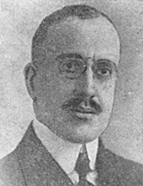

Above all, Ferrão discusses what he perceives as the failures of the various pedagogical reforms of the last half-century. He cannot completely detach himself from his own political reflections on the transitional period of 1911-1912 and the role he played in the pedagogical reforms he advocated for at the time, which he believed were hindered by inadequate teaching materials and the lack of preparation among some university professors, whom he likened to phonographs. He also revisits his favourite meditations on philosophers and philosophical currents from 1905-1907, ao período dos nossos estudos de filosofia superior [1905-1907, the period of our studies in higher philosophy.]
According to Ferrão, the reforms of the Curso Superior de Letras in 1901 and 1902 did not fulfil the aspirations of Teófilo Braga, Adolfo Coelho, and Silva Cordeiro. He noted that the demand for a medical course in Lisbon by teachers at the Polytechnic School, along with reforms in the teaching of law and medicine in Coimbra, were both quantitatively and qualitatively significant. Furthermore, he briefly mentions António José de Almeida’s unpreparedness for governance — despite their collaboration during the monarchy on Alma Nacional [National Soul] — and observes that Sidónio’s 1918 university reform, also supported by Almeida, differed little from that of 1911. He asserts that "Nothing that was done was the result of chance, improvisation, or amateurism" (António Ferrão, O Prof. Joaquim de Carvalho e sua Época, 1960, pp. 17 and n. 2 and 18, n. 1). Later, he discusses Minister Leonardo Coimbra and the notorious decrees 5491 and 5770 regarding the University of Coimbra (1919), as well as Joaquim de Carvalho's text A minha resposta [My response] (by then a graduate and doctor). Ferrão does not shy away from addressing both Leonardo Coimbra and the criticisms directed at Joaquim de Carvalho, including improprieties. As a summary and a sort of coda, Ferrão recalls how he knew Leonardo Coimbra, José Relvas, Mendes dos Remédios, and the "then young assistant Dr Gonçalves Cerejeira" (Idem, Op. Cit., pp. 24-28). He also covers the dissolution of the Coimbra University Press in 1934, which Joaquim de Carvalho oversaw, as well as Carvalho's multifaceted career as a pedagogue and intellectual, concluding with his visit to Brazil in 1953. Ferrão ends the text with the unfulfilled promise of publishing a work that would include praise for the figure he analyses, titled Recordando… Memórias (Subsídios para a história e cultura portuguesa. 1910-1960). [Remembering... Memories (Subsidies for Portuguese History and Culture. 1910-1960)]
